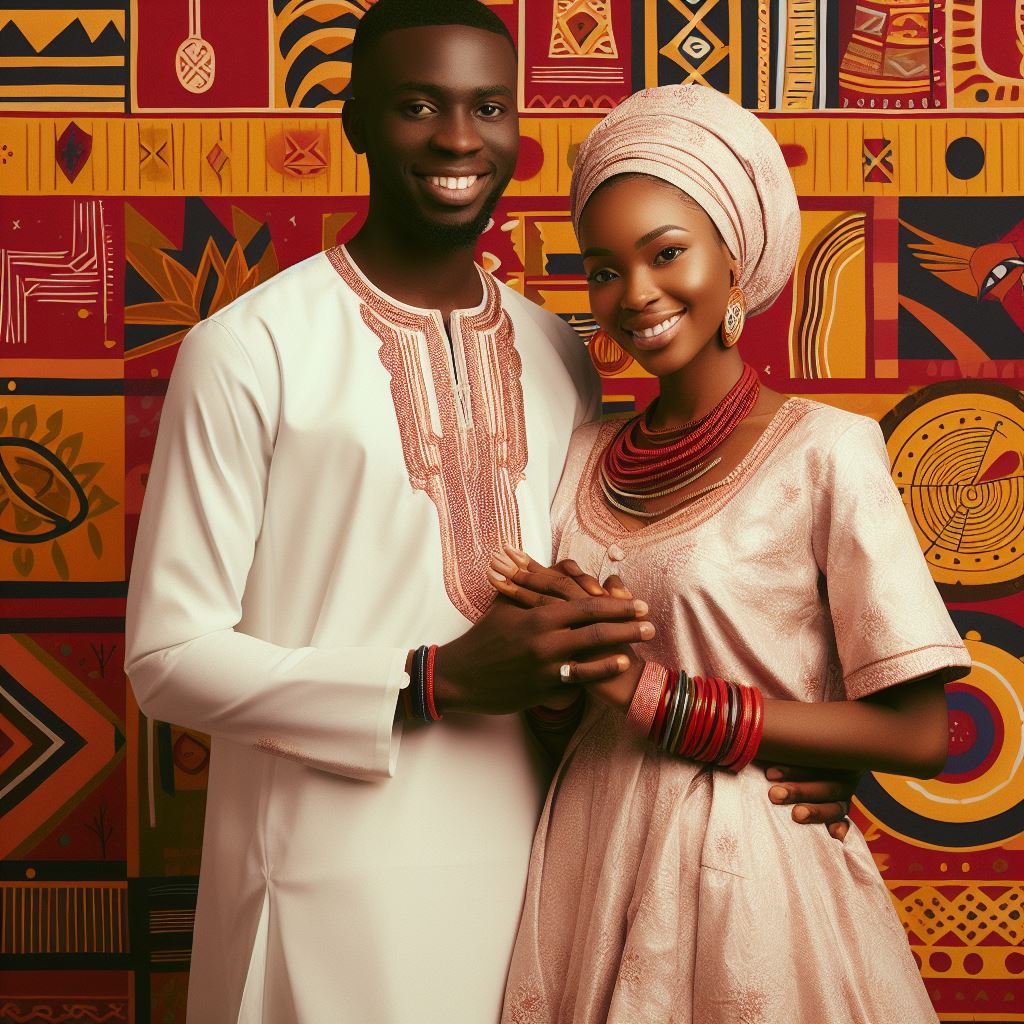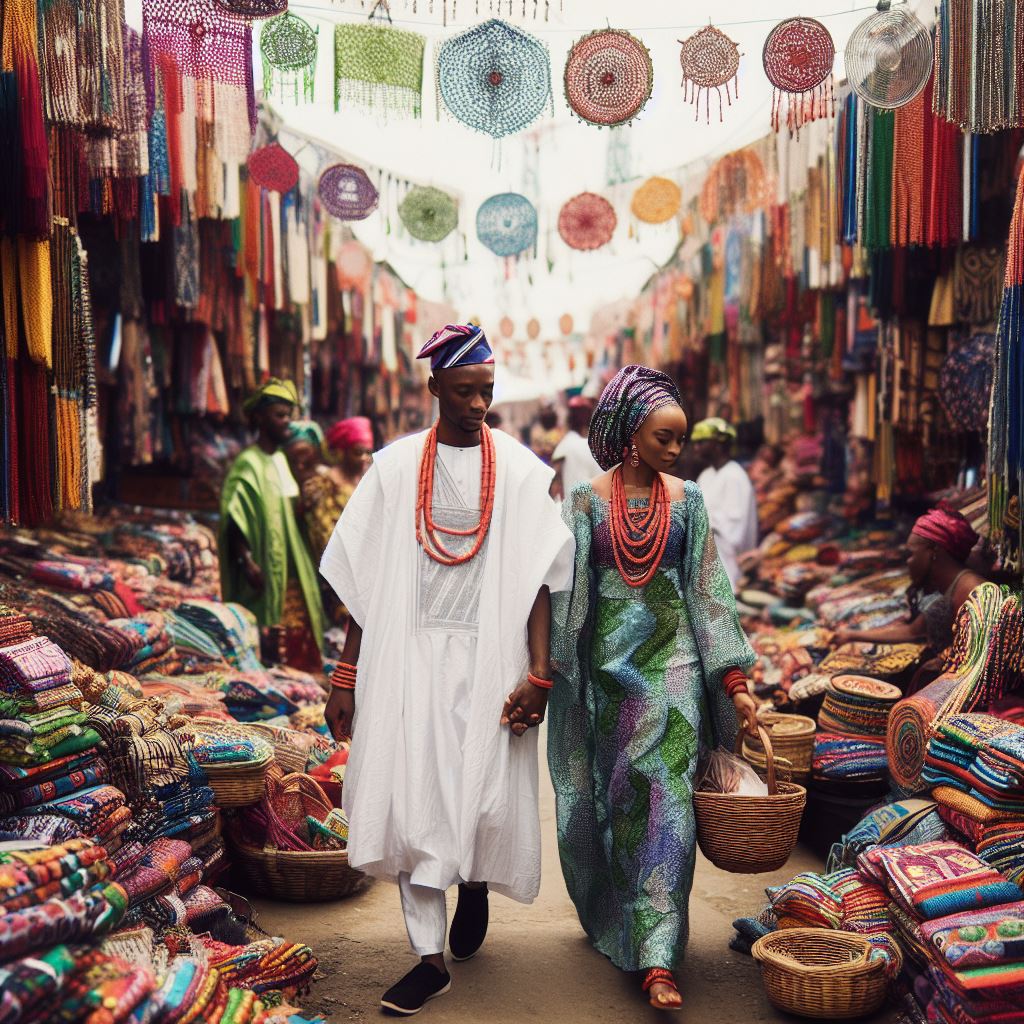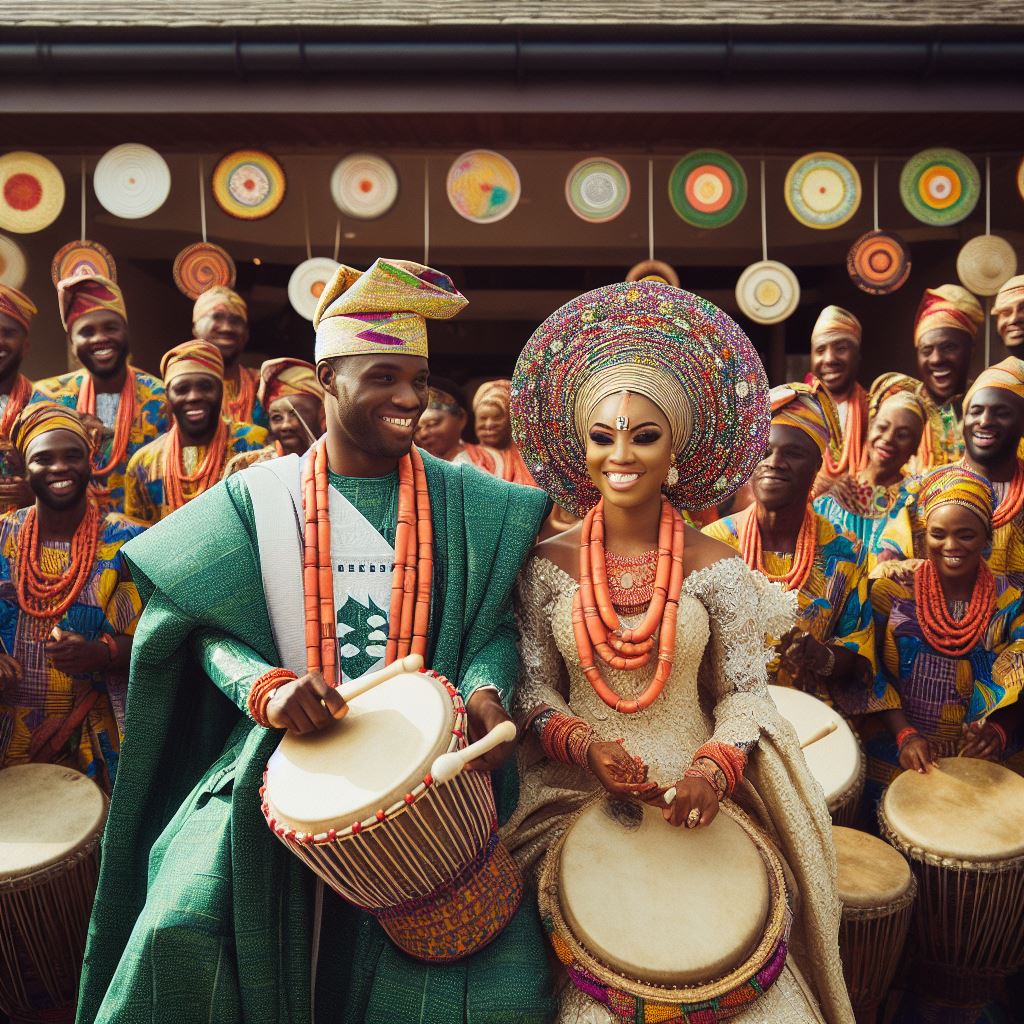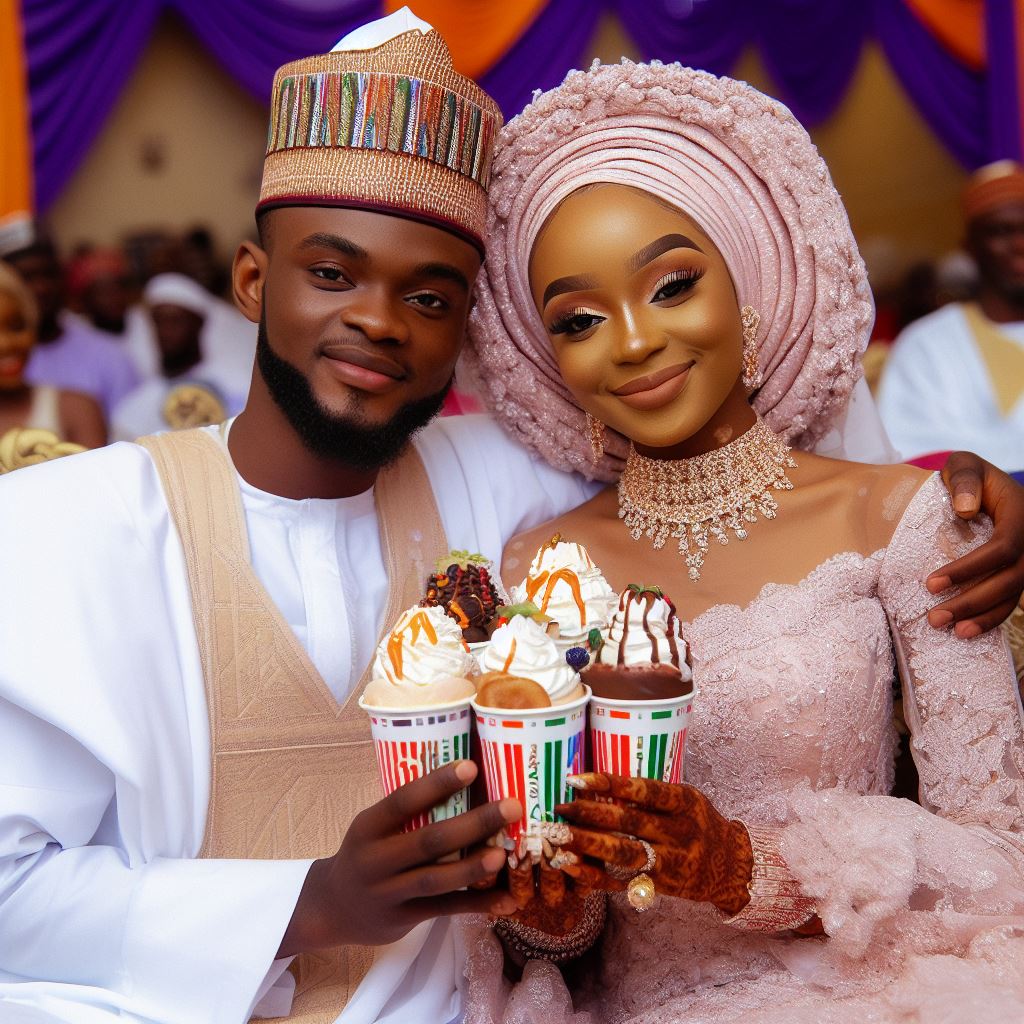Introduction
Marriage expectations in Nigeria
In Nigeria, marriage expectations play a significant role in shaping the societal norms and individual desires. It is crucial to discuss this topic due to its impact on personal relationships and the overall Nigerian culture.
Marriage expectations in Nigeria reflect the traditional values and beliefs held by its diverse ethnic groups.
These expectations encompass a range of aspects, including gender roles, family involvement, and societal pressures. They often revolve around the notion of marriage as a sacred and lifelong commitment.
Understanding marriage expectations in Nigeria is essential for individuals navigating their journey from singlehood to matrimony.
It enables them to align their desires and aspirations with societal norms and familial obligations.
By discussing this topic, individuals can gain insights into the cultural context that shapes their expectations and make informed choices about their future partnerships.
Importance of discussing this topic
Furthermore, discussing marriage expectations fosters open dialogue and understanding within the Nigerian society.
It helps bridge the gap between generations and empowers individuals to challenge harmful stereotypes and unrealistic expectations.
By exploring and questioning these expectations, Nigerians can work towards creating a more inclusive and equitable marriage culture.
Marriage expectations in Nigeria hold significant influence in shaping personal relationships and cultural norms.
Discussing this topic is crucial for individuals aiming to navigate the complexities of marriage, while also challenging and reshaping societal expectations.
It fosters understanding, promotes choice, and contributes to the growth of a more inclusive and empowered society.
Read: Commitment and Marriage: Bible Verses to Live By
Pre-marriage expectations
Expectations during the singlehood phase
- Desire for companionship
- Social pressure to get married
- Pursuit of career and education
Cultural and societal expectations
- Pressure to have a traditional wedding
- Financial expectations
- Expectations of having children
Personal expectations
- Desire for love and emotional support
- Expectations of a committed and faithful spouse
- Expectations of shared responsibilities and goals
Marriage is a significant milestone in Nigeria, and individuals have various expectations as they transition from singlehood to matrimony.
These expectations can be categorized into pre-marriage, cultural and societal, and personal expectations.
Pre-marriage expectations
During the singlehood phase, individuals have certain expectations that shape their desire for marriage. Firstly, there is a strong desire for companionship.
Many singles long for a partner who will provide emotional support and share life experiences. This longing drives them to seek marriage.
Additionally, social pressure plays a significant role in shaping pre-marriage expectations. Nigerian society places considerable emphasis on marriage as an essential life goal.
Single individuals often face societal expectations and questioning from family and friends about their plans for marriage.
Furthermore, the pursuit of career and education also influences pre-marriage expectations. Many individuals prioritize their professional and educational goals before settling down.
They believe that achieving stability and success in these areas will make them more suitable partners.
Cultural and societal expectations
Nigeria has diverse cultural practices and societal expectations relating to marriage. One significant expectation is the pressure to have a traditional wedding.
Traditional weddings are seen as a way to honor cultural heritage and gain acceptance from the extended family and community.
In addition, financial expectations can greatly impact individuals preparing for marriage. Weddings in Nigeria often involve significant expenses, and families are expected to cover these costs.
The financial burden can be a source of stress and pressure for both the couple and their families.
Moreover, there is a strong expectation of having children in Nigerian marriages. Children are seen as a blessing and a way to fulfill societal obligations.
Couples often feel pressure to conceive shortly after marriage to meet these expectations.
Personal expectations
Personal expectations are deeply rooted in the individual’s desires and needs within a marriage. Firstly, there is a strong desire for love and emotional support.
Individuals expect their spouse to provide companionship, understanding, and a nurturing bond that helps them navigate life’s challenges.
Furthermore, individuals have expectations of a committed and faithful spouse.
Loyalty and fidelity are highly valued in Nigerian marriages, and individuals seek partners who will prioritize their relationship and remain devoted to them.
Lastly, there are expectations of shared responsibilities and goals within the marriage.
Nigerian couples expect to work together as a team and share household chores, financial responsibilities, and decision-making. They aspire to build a life together, supporting each other’s dreams and ambitions.
The transition from singlehood to marriage in Nigeria comes with various expectations.
Pre-marriage expectations include the desire for companionship, social pressure, and the pursuit of career and education.
Cultural and societal expectations encompass traditional weddings, financial responsibilities, and having children.
Personal expectations revolve around love and emotional support, commitment, and shared responsibilities. Understanding these expectations is crucial for navigating the complexities of marriage in Nigeria.
Read: Strength in Unity: Marriage Verses from Ecclesiastes
Transitioning to Marriage
- Having realistic expectations is crucial when transitioning from singlehood to marriage.
- Understanding the challenges and compromises involved in a marriage is essential for a successful union.
- Mutual respect and effective communication are fundamental for maintaining a healthy marriage.
- Adjusting expectations based on shared values and beliefs helps create harmony in the relationship.
Roles and Responsibilities in Marriage
- Traditional gender roles may clash with modern expectations in a marriage.
- Navigating the balance between career and family life can be a constant challenge.
- Sharing household chores and responsibilities promotes equality and teamwork within the marriage.
Emotional and Physical Intimacy
- An emotional connection and trust are vital for the success of a marriage.
- Openly communicating needs and desires strengthens the bond between spouses.
- Overcoming challenges in maintaining intimacy requires effort, understanding, and compromise.
The balance between the two aspects of intimacy should be determined by the individuals involved and their specific needs and preferences.
Read: Love and Respect: Unearthing Biblical Verses on Marriage

Challenges and Adjustments in Marriage
Conflict Resolution and Communication
- Couples face challenges in resolving conflicts and effectively communicating with each other.
- Disagreements and conflicts are unavoidable in a marriage and require appropriate handling.
- Effective communication techniques such as active listening and open dialogue are essential.
- Seeking professional help from a therapist or counselor can be beneficial to address communication issues.
Dealing with Disagreements and Conflicts
- Marriage requires couples to learn effective ways to deal with disagreements and conflicts.
- It is important to approach conflicts with empathy, understanding, and a willingness to compromise.
- Avoiding anger and focusing on finding common ground can lead to resolution and growth in the relationship.
Effective Communication Techniques
- Couples can improve their communication by using techniques like active listening and expressing emotions.
- Clear and non-judgmental communication helps to avoid misunderstandings and build trust.
- Being open, honest, and respectful in conversations strengthens the bond between spouses.
Seeking Professional Help if Needed
- In some cases, couples may need to seek professional help to resolve deep-rooted conflicts.
- Therapy or counseling can provide a safe space for couples to address their issues and find solutions.
- Professional intervention can facilitate understanding and improve overall marital satisfaction.
Adapting to Changes
Adjusting to Living Together
- The transition from singlehood to living together as a married couple can be challenging.
- Couples must adapt to sharing space, responsibilities, and making joint decisions.
- Patience, compromise, and open communication are vital during this adjustment period.
Revisiting and Reconsidering Expectations
- Couples often have preconceived expectations about married life that need to be revisited and adjusted.
- It is crucial to have open discussions about individual and shared expectations to prevent disappointment.
- Regularly reassessing expectations promotes understanding and avoids unnecessary conflicts.
Managing Changes in Personal and Professional Lives
- Marriage brings changes in personal and professional lives that require adaptation.
- Balancing career goals, personal aspirations, and marital responsibilities can be demanding.
- Effective time management, mutual support, and compromise assist in managing these changes.
Balancing Individuality and Togetherness
Allowing Space for Personal Growth and Hobbies
- Couples must respect each other’s need for personal growth and individual hobbies.
- Encouraging personal interests helps maintain individuality and prevents feelings of suffocation.
- Balancing personal time with quality time as a couple strengthens the relationship.
Nurturing the Relationship through Quality Time Together
- Spending quality time together helps deepen the connection and intimacy in a marriage.
- Engaging in shared activities, date nights, and meaningful conversations contribute to relationship growth.
- Attention and effort towards nurturing the relationship lead to a stronger bond.
Coexisting with Different Interests and Personalities
- Marriage requires learning to coexist with differing interests and personalities.
- Embracing differences, respecting each other’s uniqueness, and finding common ground foster harmony.
- Emphasizing compromise and understanding strengthens the togetherness while honoring individuality.
By respecting each other’s differences and needs, practicing effective communication, and prioritizing mutual support, you can coexist harmoniously with people of various interests and personalities.
Read: The ‘Married at First Sight’ Phenomenon: Nigeria’s Perspective
You Might Also Like: Sexual Intimacy Issues and Seeking Help in Nigeria
Uncover the Details: Marriage Milestones: Offering Prayers of Gratitude Together
Conclusion
We have discussed various marriage expectations and challenges that individuals face in Nigeria.
It is important to emphasize the significance of having realistic expectations in marriage. Unrealistic expectations can often lead to disappointment and dissatisfaction in the relationship.
To overcome these challenges, open communication is crucial. Couples should encourage and prioritize open and honest communication to ensure a healthy and fulfilling marital bond.
This will allow partners to express their desires, concerns, and expectations, leading to better understanding and connection.
In final thoughts, marriage expectations in Nigeria are varied and can be influenced by cultural, societal, and personal factors.
It is vital to approach these expectations with a realistic mindset, understanding that marriage requires effort, compromise, and understanding from both partners.
By setting realistic expectations and fostering open communication in relationships, couples in Nigeria can navigate challenges and create strong and successful marriages based on mutual respect, trust, and love.
Remember, marriage is a journey that requires constant work and commitment, but with the right mindset and approach, it can bring immense happiness and fulfillment.




